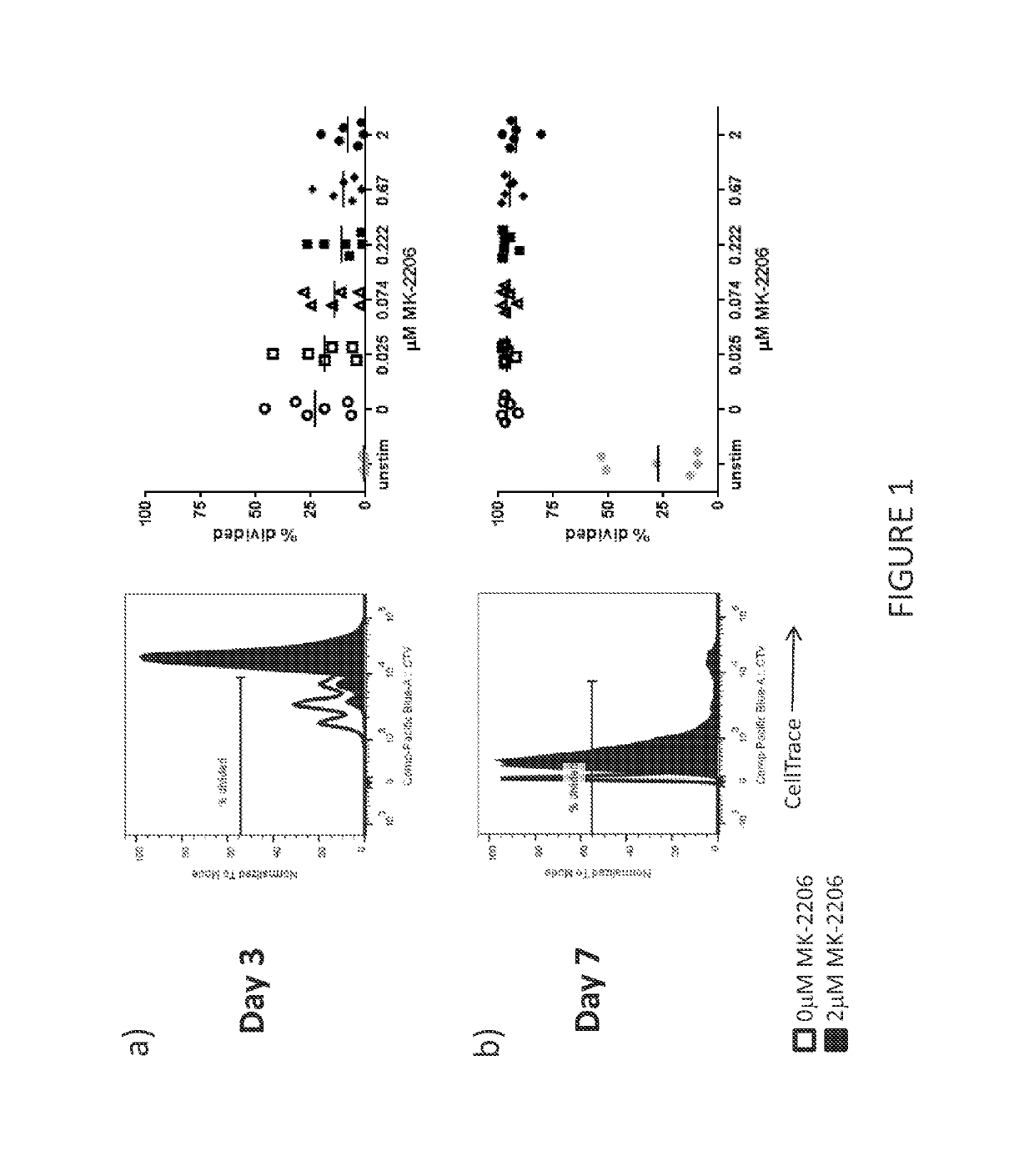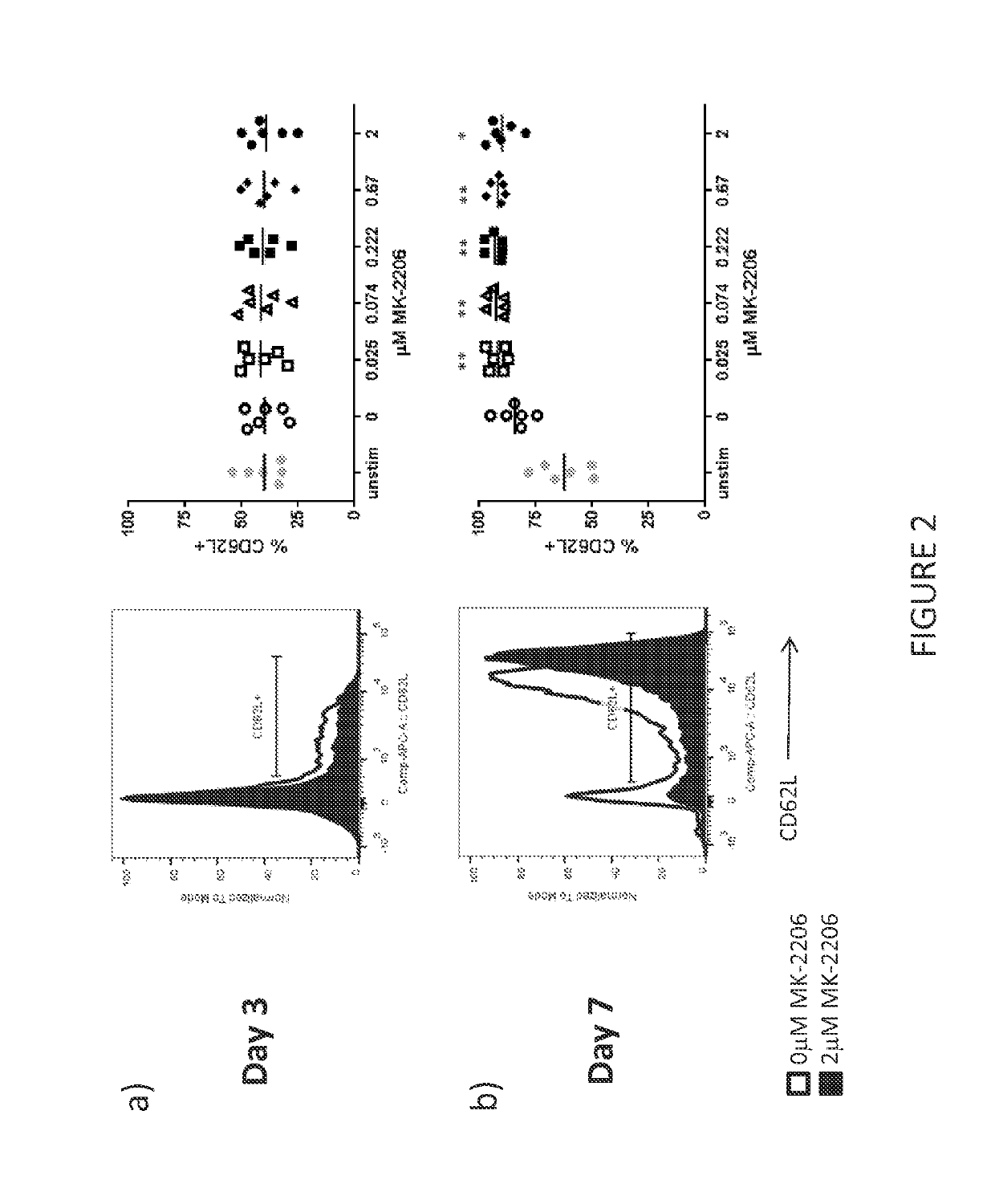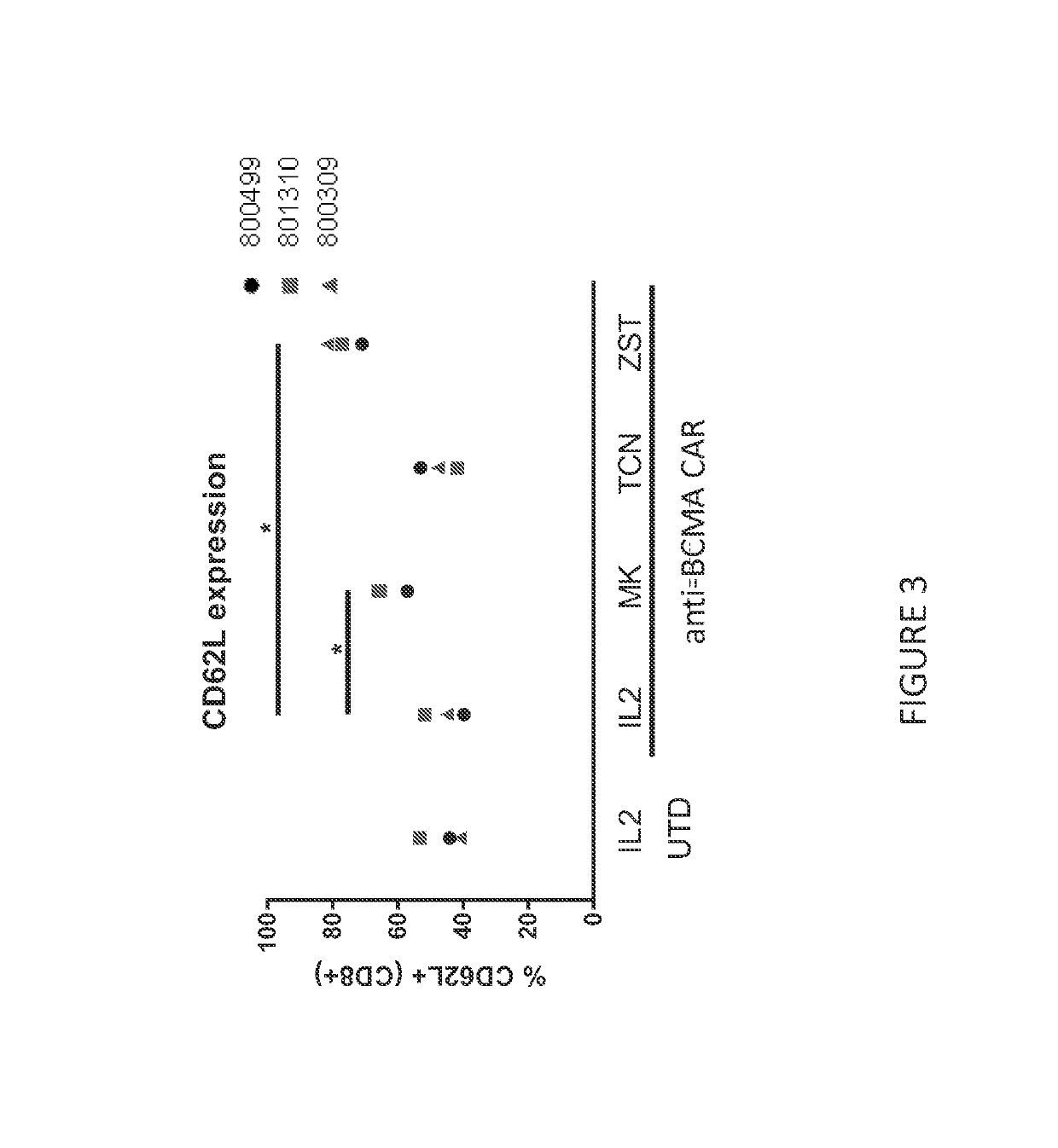Methods of making T cell compositions
a technology of t cell composition and manufacturing method, which is applied in the direction of drug composition, peptide, and genetically modified cells, can solve the problems of cumbersome t cell manufacturing process, unrealized potential of optimizing immunotherapy for treating a wide variety of diseases, and t cell expansion often requires labor intensive and expensive cloning
- Summary
- Abstract
- Description
- Claims
- Application Information
AI Technical Summary
Benefits of technology
Problems solved by technology
Method used
Image
Examples
example 1
Proliferation of T Cells Cultured with an AKT Inhibitor
[0420]The purpose of this experiment was to determine the effect of Akt inhibitors on T cell proliferation. The impact of MK-2206 (Selleckchem) on T cell proliferation was assessed by measuring T cell division.
[0421]Peripheral blood mononuclear cells (PBMC) are a heterogeneous cellular population containing T cells. PBMC were harvested from normal donors and labeled with a fluorescent dye (CellTrace® Violet, Molecular Probes), whose intensity is progressively diluted by a factor of two with each cell division. The labeled PBMCs were used as a source of cells for T cell expansion. T cells were activated and expanded by culturing the labeled PBMCs with CD3 and CD28 antibodies (Miltenyi Biotec) in media containing IL-2 (CellGenix).
[0422]The impact of MK-2206 on cell division was assayed by evaluating CellTrace Violet dilution with flow cytometry after the addition of 0.025 μM, 0.074 μM, 0.222 μM, 0.67 μM, or 2.0 μM, MK-2206 to the ...
example 2
CD62L Expression on T Cells Treated with MK-2206
[0423]The purpose of this experiment was to determine the effect of Akt inhibitors on T cell markers for T cell potency. The impact of MK-2206 (Selleckchem) on T cell potency was assessed by measuring CD62L expression in the T cell cultures manufactured in Example 1.
[0424]Mouse models have shown that CD62L expression identifies potent T cells; T cells with greater anti-tumor efficacy after adoptive transfer. However, T cells cultured with IL-2 in vitro have been shown to reduce CD62L expression and therefore correlate with reduced anti-tumor potency of tumor-specific T cells. Surprisingly, the present inventor has discovered that the AKT inhibitor MK-2206 significantly increases CD62L expression at all concentrations of MK-2206 tested after seven days of culture and in the presence of IL-2. FIG. 2. A pairwise T test was performed on all day seven cultures (each concentration of MK-2206 was compared to 0 μM MK-2206: *p<0.05, **p<0.01).
example 3
CD62L Expression on CAR T Cells Treated with Mk-2206 or ZSTK474
[0425]CAR T cells were cultured with either MK-2206 or triciribine phosphate—TCN (AKT inhibitors) or ZSTK474 (PI3K inhibitor). CAR T cells specific for B cell maturation antigen (BCMA) were used in these set of experiments. CAR T cell cultures were performed using a system directly scalable to large clinical manufacturing processes. Briefly, peripheral blood mononuclear cells (PBMC) were cultured in static flasks in media containing IL-2 (CellGenix) and antibodies specific for CD3 and CD28 (Miltenyi Biotec). 2×108 transducing units of lentivirus encoding anti-BCMA CARs were added one day after culture initiation. The anti-BCMA CAR T cells were maintained in log-phase by adding fresh media containing IL-2 and an optimized dose of an inhibitor for a total of ten days of culture. At the end of culture, the anti-BCMA CAR T cells were interrogated for phenotype.
[0426]Expression of CD62L on anti-BCMA CAR T cells was assessed b...
PUM
| Property | Measurement | Unit |
|---|---|---|
| temperatures | aaaaa | aaaaa |
| temperatures | aaaaa | aaaaa |
| temperature | aaaaa | aaaaa |
Abstract
Description
Claims
Application Information
 Login to View More
Login to View More - R&D
- Intellectual Property
- Life Sciences
- Materials
- Tech Scout
- Unparalleled Data Quality
- Higher Quality Content
- 60% Fewer Hallucinations
Browse by: Latest US Patents, China's latest patents, Technical Efficacy Thesaurus, Application Domain, Technology Topic, Popular Technical Reports.
© 2025 PatSnap. All rights reserved.Legal|Privacy policy|Modern Slavery Act Transparency Statement|Sitemap|About US| Contact US: help@patsnap.com



